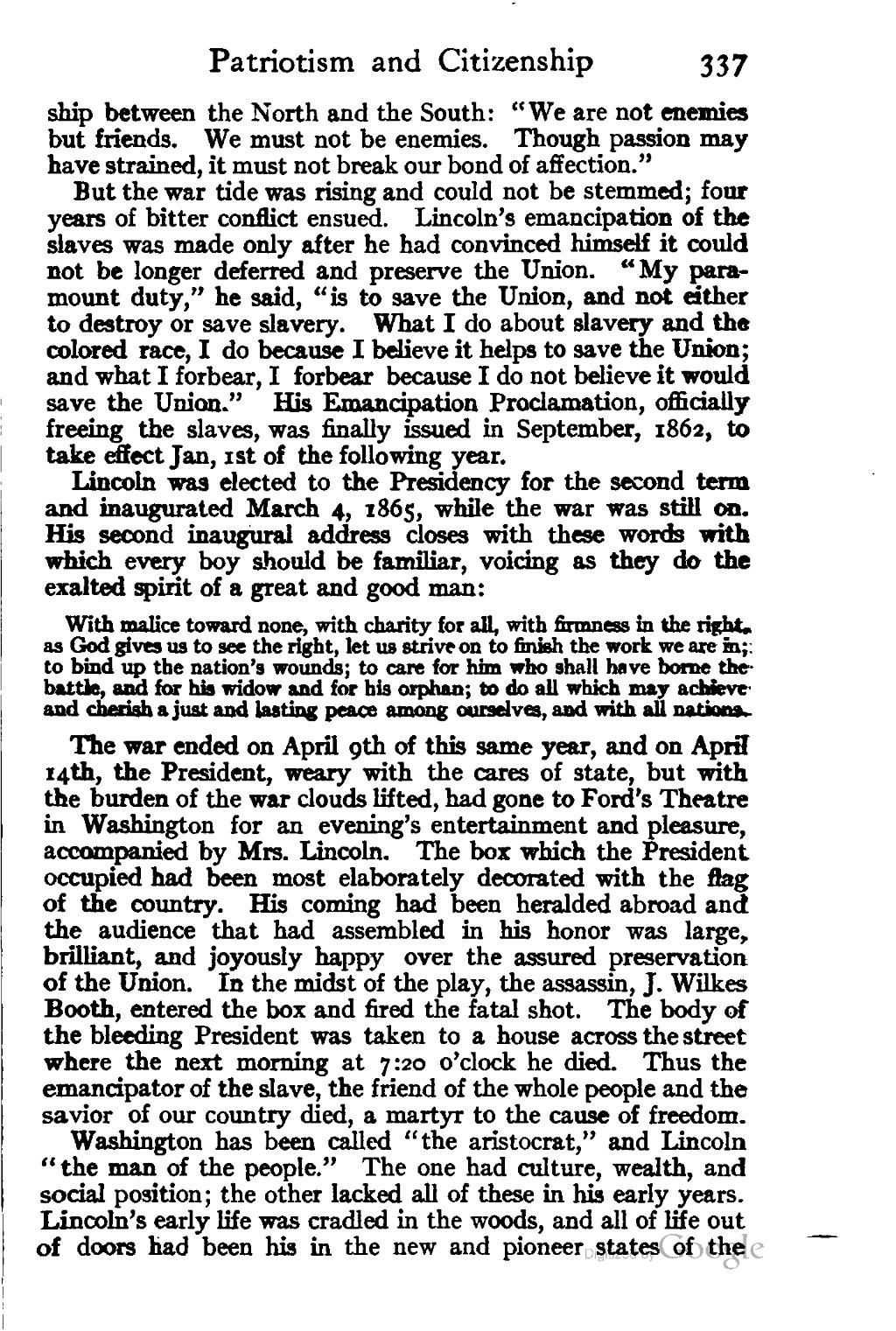Pokračování textu ze strany 357
… between the North and the South: “We are not enemies but friends. We must not be enemies. Though pass/on may have strained, it must not break our bond of affection.”
But the war tide was rising and could not be stemmed; four years o bitter conflict ensued. Lincoln's emancipation of the slaves was made only after he had convinced himself it could not be longer deferred and preserve the Union. “My paramount duty,” he said, “is to save the Union, and not either to destroy or save slavery. What I do about slavery and the colored race, I do because I believe it helps to save the Union; and what I forbear, I forbear because I do not believe it would save the Union.” His Emancipation Proclamation, officially freeing the slaves, was finally issued in September, 1862, to take effect Jan, 1st of the following year.
Lincoln was elected to the Presidency for the second term and inaugurated March 4, 1865, while the war was still on. His second inaugural address closes with these words with which every boy should be familiar, voicing as they do the exalted spirit of a great and good man:
With malice toward none, with charity for all, with firmness in the right as God gives us to see the right, let us strive on to finish the work we are to bind up the nation's wounds; to care for him who shall have borne the. battle, and for his widow and for his orphan; to do all which may achieve and cherish a just and lasting peace among ourselves, and with all nations.
The war ended on April 9th of this same year, and on April 14th, the President, weary with the cares of state, but with the burden of the war clouds lifted, has gone to Ford's Theatre in Washington for an evening's enterainment and pleasure, accompanied by Mrs. Lincoln. The box which the President occupied had been most elaborately decorated with the flag of the country. His coming had been heralded abroad and the audience that had assembled in his honor was large, brilliant, and joyously happy over the assured preservation of the Union. In the midst of the play, the assassin, J. Wilkes Booth, entered the box and fired the fatal shot. The body of the bleeding President was taken to a house across the street where the next morning at 7:20 o'clock he died. Thus the emancipator of the slave, the friend of the whole people and the savior of our country died, a martyr to the cause of freedom.
Washington has been called “the aristocrat,” and Lincoln “the man of the people.” The one had culture, wealth, and social position; the other lacked all of these in his early years. Lincoln's early life was cradled in the woods, and all of life out of doors had been his in the new and pioneer states of the ..text pokračuje
